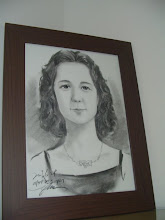anna wierzbicka
She proposes that all languages have a word for "hands" and "head."
She's angry!
"To say that some far-away language has no word for 'hands' just because it uses the same word for 'hands' and (roughly) 'arms is like saying that Russian has no word for 'hands' becasue the Russian word ruki can mean eitehr 'hands' or (roughly) 'arms': or that English has no word for 'head' (as a body part) because the English word 'head' can also be used in some otehr senses."
"Ultimately, the only way to establish whether a wrd is polysemous or not is to show what the hypothetical 'gerneal' or 'vague' meaning might be."
"...while many concepts are language- and culture-sepcific, the concept of BODY is universal, just as the concepts of KNOW and THINK are universal."
"The hallmark of the NSM system is that meanings are represented in a tightly constrained, yet expressively flexible, "mini-language" of empirically established universal semantic primes along with ethir inherent universal grammar."
"It is or aspires to be a formal semantic metalanguage based on natural language."
"Crucially, an NSM explication is intended as a conceptual representation as well as a semantic one: what is of interest to NSM is not just formal elegance or ingenuity, but the psychological reality."
"The concept of ;mind'...is highly language specific...But 'body' as a conceptual universal has so far passed all rigorous semantic testing with flying colors."
"The words for KNOW and THINK are likely to be polysemous in many languages of the world, including Papua New Guinea and Australia, but this does not undermine their status as coneptual universals."
"...human hands mediate to a very large extent, between the world and the human mind."
"Hands are far too important in human cognition to be conceived of as two flaps at the end of people's arms: they are universally conceived of as two parts of the body...--they are not mediated via the conept of 'arm'."
"To say that some langauges do not have a word for hands may have a certain shock value, but there is a difference between shock value and truth value."
The concepts of head, arms, and legs are determined by their shape (round, long). The conept of hands is not determined by their shape.
allolexy: "two differentw ords (or morphemes) may function in different contexts as two lexical variants of the same ismple meaning."
She compares polish and english concepts of hands, feet, and fingers.
"...both the words for 'body' and the word for 'hands' can be polysemous (as can of course be the word for 'part') but this should not prevent us form recognizing the universality of these concepts as distinct word-meanings."
"The body is not just a "physical universal'...it is almost certainly a conceptual universal. It is a shared human yardstick for interpreting the world."
Subscribe to:
Post Comments (Atom)

No comments:
Post a Comment